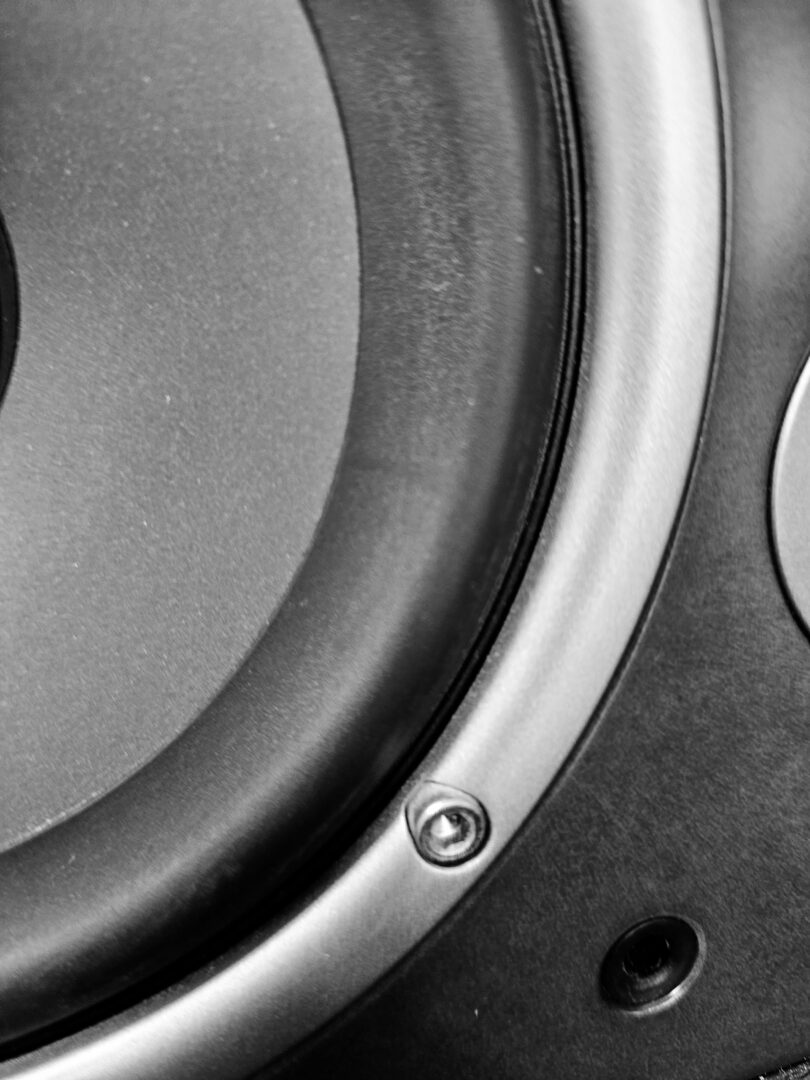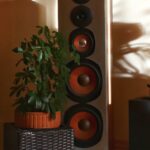Why Is My Center Channel Speaker So Quiet? (Explained)
Why Is My Center Channel Speaker So Quiet? (Explained)

The center channel as you’re probably already aware is largely responsible for a majority of the dialogue in voices in your content.
It’s why anytime I make a new home theater, I always start with the center channel then base my left and right speakers around that.
That said, you’re probably also aware that because home theater can be such a dynamic topic, sometimes there can be issues with setup, the equipment, etc.
For example, if it’s a new setup or even just out the of the blue with your current one, what if you notice you’re center channel speaker becomes quiet all of a sudden?
Why’s that, and are there any ways to fix this?
Let’s find out.
Why Is My Center Channel Speaker So Quiet?
Your center channel speaker may seem quiet because the volume in the receiver is too low, the listening position is too far, a dynamic range control/compression setting is enabled, the center speaker isn’t timbre matched to the front soundstage speakers, the wires/connectors are loose, or something internally failed.
Should you need a new one, here’s a few additional ideas for a center speaker as well.
The Best Center Channel Speakers
Volume In The Receiver Is Too Low
From my experience there can be many reasons why the center channel speaker can seem quiet but one such reason might just be because the volume in the receiver settings itself is simply too low.
Of course there’s the master volume knob that controls the overall volume, but in the settings of the receiver, try adjusting the center speaker’s volume specifically to see if that helps.
If it’s a newer receiver, it’s always possible that an update could have added a feature of some kind or even changed the default settings which could have affected the settings you originally had it set at.
If your receiver came with a small optimization microphone, I’d recommend plugging it in and running the auto room optimization feature to see if that might help things.
Though if it still seems quiet, you could try raising it from there.
You don’t want it to over power the left & right speakers of course, you just want things to blend smoothly so the sound doesn’t seem like it’s coming from any one speaker specifically.
Just be sure it’s not the content too, since I’ve noticed that sometimes different shows or movies can be mixed differently — leading to some being quieter than others.
Finally keep in mind that different receivers processes sound differently, and if you swap out your receiver even with the same speakers, there can be some level of variance with how things sound so keep that in mind.
Maybe The Seating Position Is Too Far
Another reason could be that your seating position from the speaker is too far.
Different speakers have different capabilities when it comes to volume, and if it’s not capable of going high enough at your current seating distance then it might sound somewhat quiet.
I like to use a distance of at least 6 feet from my left & speakers, while spacing them at least 6 feet apart, so that’s something to try if your space allows for it.
But if things still seem to quiet at that distance, try moving things closer to see how content then sounds.
Every room is different and a speaker at a certain distance in one room may sound different in another.
Something else that might help is acoustically treating the room by way of acoustic sound panels.
I’ve talked about it before, but basically using sound panels in the room could help with reducing sound reflections in the room, which ultimately could help the audio quality to some degree.
Check Availability Of Acoustic Sound Panels
DRC Might Be On
If your receiver has a Dynamic Range Control/Compression setting (DRC) then it’s possible this could be enabled and could be what’s affecting the audio output.
It might go by some sort of night mode name or something similar, or even just DRC.
The DRC setting basically works by limiting the range of sounds so that there’s a smaller range of potential sound output.
It makes it so really loud sound effects sound similar to the quieter ones so that everything is around the same volume without major spikes or dips.
Of course different receivers have different ways they implement this, but that’s the basic premise of it.
This can be helpful at night when you’re watching something and don’t want to disturb others or even if you’re sleeping, but if that setting is on, this could be why the center channel seems quieter.
It can also have an effect on your other speakers too, so it’s something to be aware of.
May Not Be Timbre Matched If It’s Different From The Other Speakers
If the current center speaker you’re using isn’t the same or really similar to your left and right speakers, it’s possible they’re not timbre matched. This might make it to where one speaker might be overpowering the other, or one sounds differently than the other one.
Timbre matching basically means using the same or similar speakers together so that everything sounds cohesive and blends together.
Doing this for your front speakers in particular is important since using ones mismatched from different brands or lines could lead to audio that isn’t as cohesive since they might all sound differently.
Make Sure The Connectors Are Fully Plugged In
This might seem simple, but make sure the connectors for your center speaker are entirely plugged in to both the back of the speaker itself, and the back of your receiver.
Not doing so could lead to the audio seeming quieter than it should be.
If there’s any dust present in or around the connector, lightly cleaning it with a microfiber cloth may help too.
If you’re using just the bare wire for the speaker, check to see if the ends aren’t oxidized (they’ll look a different color then what they use to) If you do notice this, then you could replace that part of the wire so there’s newer strands.
You could also switch to using connectors instead if you feel they’d offer a better connection or don’t want to worry about losing individual stands.
Something Internally May Have Failed
Finally it’s possible that the speaker itself may have an internal component that may have failed in some way.
Whether it’s an older age of a speaker or a newer one, it’s possible that something inside or even the driver itself may have failed for whatever reason.
Besides repairing, which would require lots of technical know-how and knowledge of what failed specifically, the speaker itself may need to be replaced if something did go awry.
In that case, one center speaker that I think is really good is the Klipsch R-52C due to its exceptional audio quality.
Final Thoughts
With that, that just about does it for this one.
While there could be any number of reasons your center channel speaker seems quiet, these are just a few that could be the reason the why.
Hopefully it gives you an idea of what might be applicable in your case since there’s many variables when it comes to home theater.
Until next time, make it easy, keep it simple.
About Me

Jay
Hey everyone it’s nice to meet you. I'm Jay, writer & founder of the site Easy Home Theater. I've been with this hobby of home entertainment for many years now. I decided to create this site to be a helpful resource, and share everything that I've learned from personal experience with you. I also happen to be a huge gamer, lover of all things tech related, and a major fitness buff (love weightlifting)
Contact: Contact Jay
Facebook: https://www.facebook.com/Easyhometheater/
X: https://x.com/easyhometheater
Pinterest: https://www.pinterest.com/easyhometheater/pins/
Instagram: https://www.instagram.com/easyhometheater/
Followit: https://follow.it/easy-home-theater
Bluesky: https://bsky.app/profile/easyhometheater.bsky.social






Leave a Reply